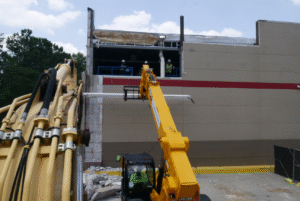
Mining has long been the backbone of South Africa’s economy. From gold and diamonds to platinum and coal, the country’s mineral wealth has shaped its industrial landscape for decades. However, the industry is undergoing a major transformation, driven by technology, environmental pressures, and global demand shifts. At the heart of this evolution lies mining engineering, the discipline that ensures operations are safe, efficient, sustainable, and innovative.
1. The Role of Mining Engineering in South Africa
Mining engineering is a multidisciplinary field that combines geology, metallurgy, mechanical systems, and environmental science. In South Africa, mining engineers are responsible for designing, planning, and optimizing extraction methods, ensuring worker safety, and addressing environmental impacts.
South Africa’s reliance on minerals such as platinum, manganese, gold, and coal makes mining engineering essential. Without skilled engineers, mining companies cannot maximize efficiency or meet international safety and sustainability standards.
2. Historical Significance of Mining in South Africa
Mining has been central to South Africa’s development since the discovery of diamonds in Kimberley in the 1860s and gold in the Witwatersrand Basin in the 1880s. These discoveries transformed the nation into a global mining hub.
The industry created jobs, infrastructure, and urbanization. It also gave rise to mining towns, labor systems, and a complex socio-economic structure. Today, South Africa remains one of the world’s leading producers of platinum group metals, and mining engineering continues to play a pivotal role in maintaining this status.
3. Current State of the Mining Industry
South Africa’s mining sector contributes nearly 8% to the GDP and employs hundreds of thousands of workers. Despite facing challenges like electricity shortages, labor disputes, and fluctuating commodity prices, the industry is showing resilience.
- Platinum and palladium demand remains high due to their use in catalytic converters and green technologies.
- Gold mining, though declining in volume, still holds significant cultural and economic importance.
- Coal mining is under pressure from environmental activists, yet it remains vital for South Africa’s power generation.
- Rare minerals such as vanadium and manganese are gaining traction in global markets.
This dynamic environment requires a new generation of mining engineers equipped with advanced skills and innovative thinking.
4. Technological Innovations Transforming Mining Engineering
The mining industry is no longer just about drilling and blasting. Technological advancements are redefining what it means to be a mining engineer in South Africa.
a. Automation and Robotics
Mining companies are adopting automated drilling rigs, robotic loaders, and autonomous haul trucks. These reduce human exposure to dangerous environments while increasing efficiency. Mining engineering is now focused on designing and maintaining these systems.
b. Artificial Intelligence and Data Analytics
AI helps predict equipment failures, optimize ore extraction, and improve safety through predictive modeling. Data-driven mining is becoming the new norm.
c. Renewable Energy Integration
With South Africa’s energy crisis, mining companies are turning to solar and wind power. Engineers are tasked with integrating renewable energy systems into traditional mining operations.
d. Virtual Reality and Simulation
Training mining engineers through VR simulations enhances safety and prepares them for real-world challenges without exposing them to risks.
5. Environmental and Social Responsibility
Modern mining engineering in South Africa is not just about resource extraction. It also prioritizes environmental stewardship and community development.
- Rehabilitation of mines: Engineers develop plans to restore ecosystems after mining operations end.
- Water management: Techniques are being designed to reduce acid mine drainage, a major problem in South Africa.
- Community engagement: Engineers work closely with local communities to ensure sustainable benefits, such as infrastructure and employment opportunities.
Future mining engineers must balance profitability with sustainability to ensure long-term success.
6. Skills Required for Future Mining Engineers
As the industry evolves, so do the required skills for mining engineers in South Africa. Future engineers must master both traditional and modern competencies:
- Expertise in geology and metallurgy.
- Knowledge of mechanical and electrical engineering.
- Proficiency in data analytics, AI, and automation technologies.
- Strong grounding in environmental management.
- Leadership, project management, and community engagement skills.
Universities across South Africa, including Wits University and the University of Pretoria, are updating their mining engineering curricula to meet these demands.
7. Challenges Facing Mining Engineering in South Africa
Despite promising opportunities, mining engineering faces obstacles that could hinder progress.
- Energy crisis: Power shortages disrupt mining operations and slow innovation.
- Aging infrastructure: Many mines are old, requiring engineers to modernize outdated systems.
- Safety concerns: Deep-level mining remains risky, necessitating advanced safety technologies.
- Environmental activism: Pressure to transition away from fossil fuels is intensifying.
- Skills gap: A shortage of highly skilled engineers poses a long-term challenge.
Addressing these issues will determine the future success of mining engineering in South Africa.
8. Opportunities for Growth
While challenges exist, the future of mining engineering in South Africa is bright. Several opportunities can drive growth:
- Green Minerals Boom: With the rise of electric vehicles and renewable energy, demand for platinum, manganese, and vanadium is increasing.
- International Investment: Global companies are interested in South Africa’s mineral wealth, creating demand for skilled mining engineers.
- Digital Transformation: Engineers specializing in automation and AI are highly sought after.
- Sustainable Mining: Innovations in eco-friendly mining practices create new career opportunities.
9. The Global Perspective
South African mining engineers are not limited to local opportunities. Their expertise is in demand worldwide. Countries such as Australia, Canada, and Chile recruit South African mining engineers due to their experience with deep-level mining and complex geological conditions.
This global relevance ensures that South Africa remains a leader in mining engineering education and innovation.
10. The Road Ahead
The future of mining engineering in South Africa is about balance—between technology and tradition, profit and sustainability, and local growth and global competitiveness.
To thrive, the industry must:
- Embrace technological innovation.
- Invest in skills development and education.
- Prioritize environmental responsibility.
- Foster collaboration between government, private companies, and communities.
With these strategies, mining engineering can drive South Africa’s economic growth while shaping a sustainable future.
Conclusion
Mining has always been central to South Africa’s story, but the future of the industry rests in the hands of mining engineers. They are the innovators, problem-solvers, and leaders who will guide the industry into a new era of efficiency, safety, and sustainability.
As global demand for minerals evolves, mining engineering in South Africa will remain essential—not just for extracting resources, but for building a future where technology, environment, and society coexist harmoniously.






